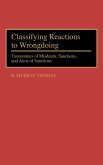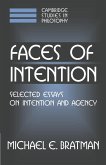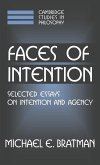According to the principle of double effect, there is a strict moral constraint against bringing about serious harm to the innocent intentionally, but it is permissible in a wider range of circumstances to act in a way that brings about harm as a foreseen but non-intended side effect. This idea plays an important role in just war theory and international law, and in the twentieth century Elizabeth Anscombe and Philippa Foot invoked it as a way of resisting consequentialism. However, many moral philosophers now regard the principle with hostility or suspicion. Challenging the philosophical orthodoxy, Joshua Stuchlik defends the principle of double effect, situating it within a moral framework of human solidarity and responding to philosophical objections to it. His study uncovers links between ethics, philosophy of action, and moral psychology, and will be of interest to anyone seeking to understand the moral relevance of intention.
Hinweis: Dieser Artikel kann nur an eine deutsche Lieferadresse ausgeliefert werden.
Hinweis: Dieser Artikel kann nur an eine deutsche Lieferadresse ausgeliefert werden.








